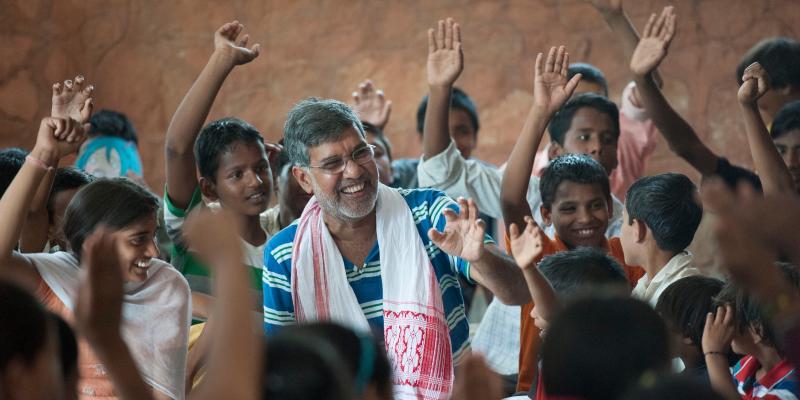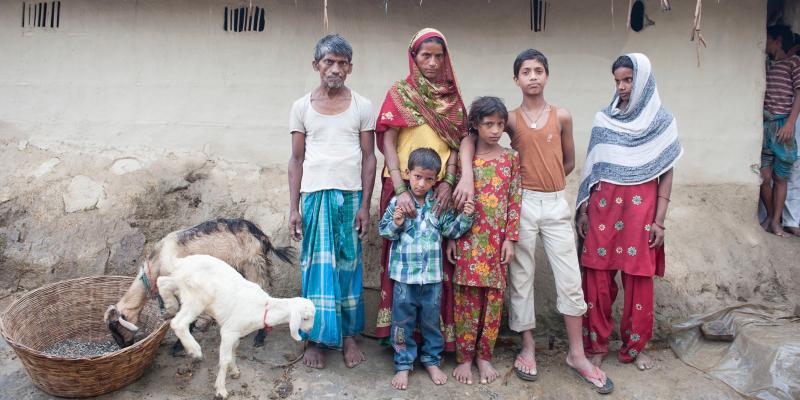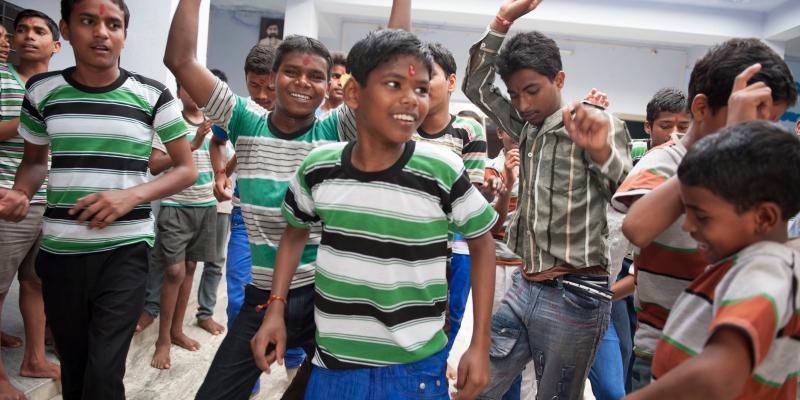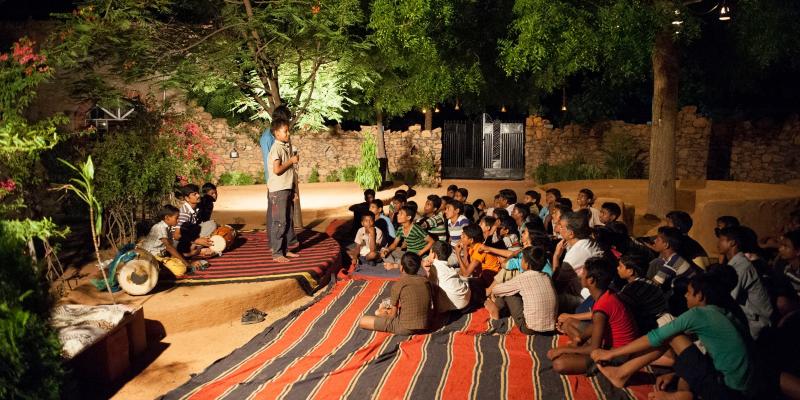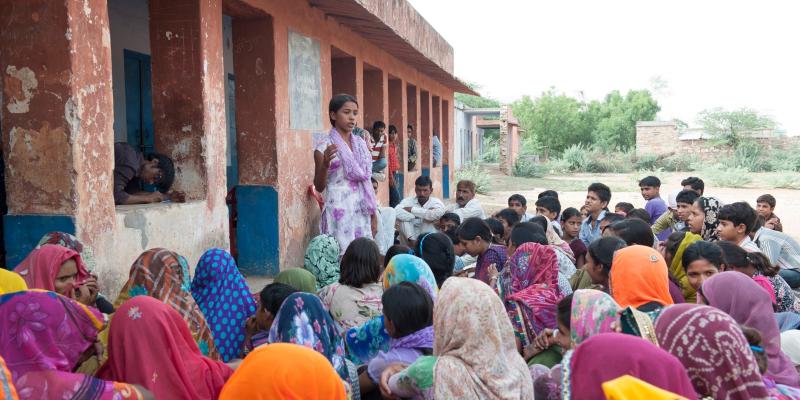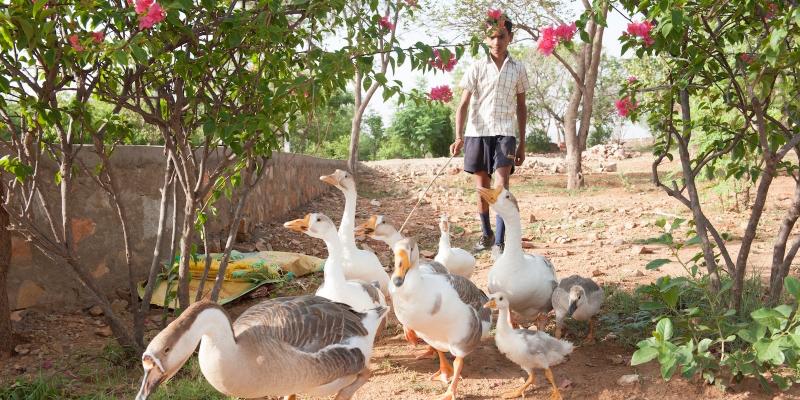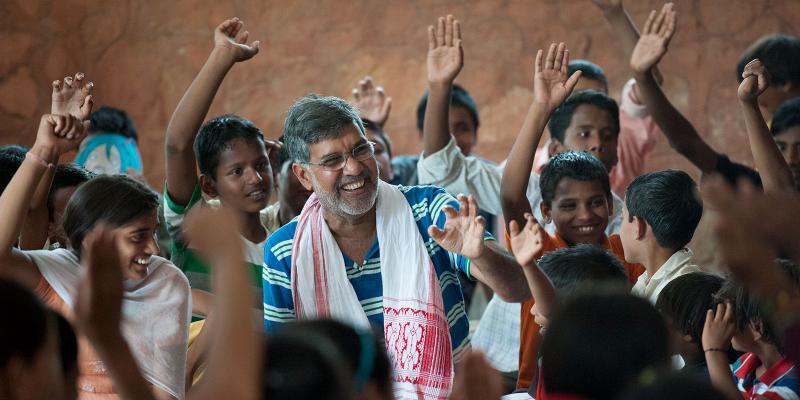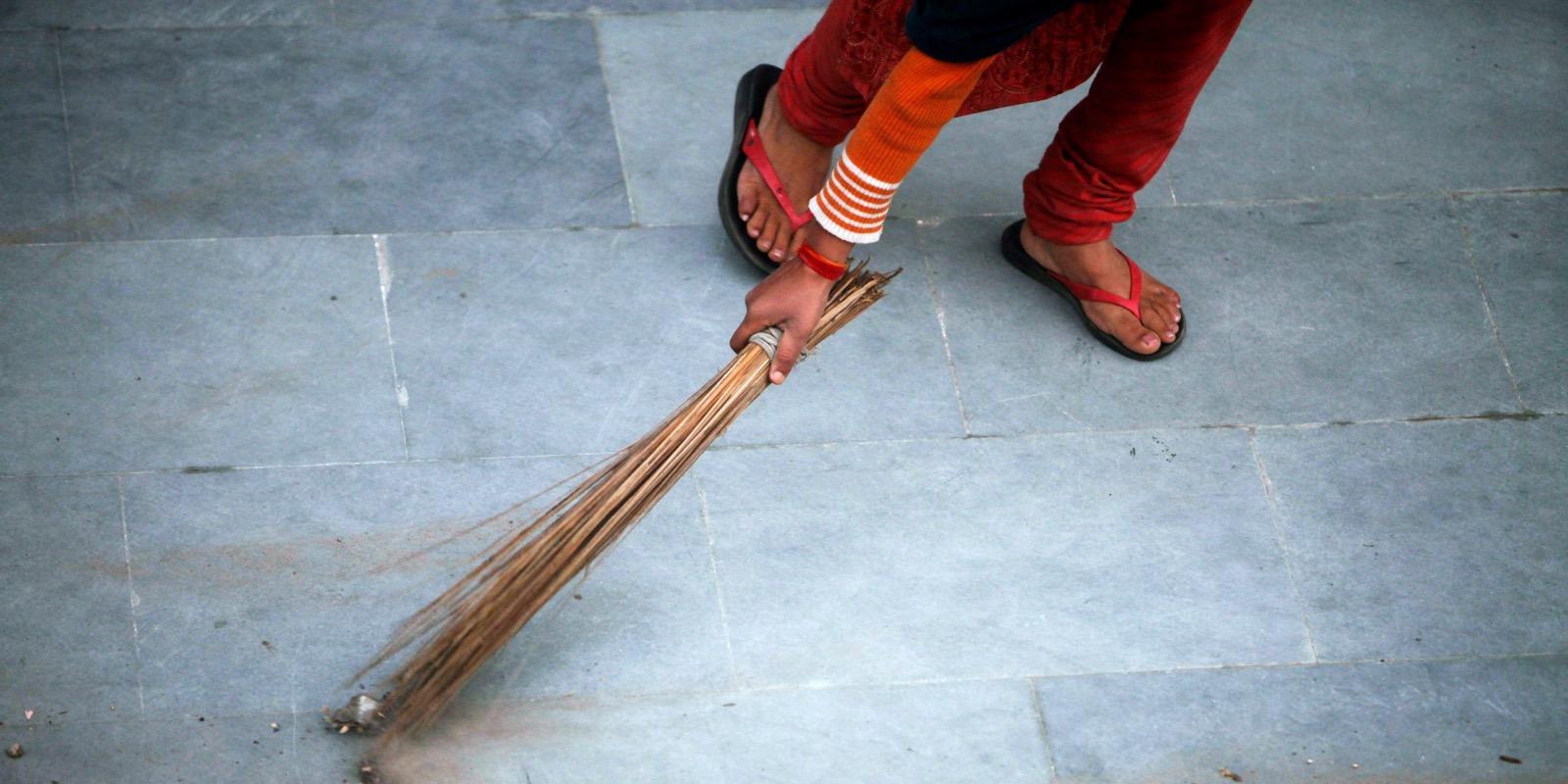
Meena was just twelve when she was sold as a domestic slave. She was forced to work but she never stopped hoping for a better life.
When Meena is small, her mother’s new husband demands that she call him father.
“I have a father, and you are not him,” says Meena. Her stepfather flies into a rage and hits her. Sometimes he grabs her arm and hits it with a stick until her arm is dirty and bleeding. Then Meena’s mother dies and she moves in with her aunt. But the deep scars on her arms ensure that she will never forget her stepfather.
Sold for US$300
When Meena is twelve, a man called Steven tells her that he can get her a good job in the capital city, Delhi. The money she earns will help her family. Her aunt is poor, so she lets Steven take Meena. In Delhi, he sells her for US$300 to a domestic worker agency.
Meena has to sit in a room with 40 other girls. Nobody knows what’s going to happen, and they are all scared. Meena just wants to go home, but an adult comes and starts asking her questions:
“Are you good at cooking? Do you know how to clean?”
“I don’t know how to do any of that,” says Meena, almost screaming. She asks again to be allowed to go home but nobody listens. Instead, a few days later, she is collected by the family who have bought her.
Tries to escape
Meena runs away and hides in a house in the area, but she is soon found and taken back to the agency. The adults there beat her and tell her she has to forget where she came from.
“You’ll never see your home village again. You will work, that is your life now.”
The very next day, Meena is sold again, to a new family. Every morning she gets up at five to clean, water the flowers, do laundry and cook. She is only allowed to eat bread. She sleeps in a small cupboard behind the kitchen, but she rarely goes to bed before two in the morning. She is always tired and hungry. She complains and is given a little rice, but not the same rice as the family. They buy a cheaper kind for her.
Meena is attacked
Every day, a greengrocer comes to deliver food to the kitchen. The family have bought vegetables from him for years. He notices Meena and always tries to talk to her. One day, when nobody else is home, the man follows Meena into a room and closes the door. The man puts his hand over her mouth. He presses so hard that she can’t make a sound. With his other hand he holds Meena’s arms behind her back. She kicks and struggles, but the man is too strong.
The man puts his hand over her mouth. He presses so hard that she can’t make a sound.
When the family come home, Meena tells the lady of the house what happened. She is furious and blames Meena.
“You seduced him,” she says. Meena knows that this is not true, and tells other people. The lady’s sister-in-law listens, and reprimands the greengrocer. She tells him to leave Meena alone. But they let him continue to deliver vegetables, and nobody protects Meena when the man continues to pursue her. She manages to avoid him and gets a padlock so that she can lock herself in when nobody else is home.
A couple of months later, Meena starts bleeding heavily. It turns out she had become pregnant when she was raped, and now she has had a miscarriage. She cries in despair and longs to go home, but no-one can help her.
Set free by Kailash
When Meena is 17, Kailash and BBA find out that she is being held captive. They carry out a rescue mission and they manage to set her free and take her to a safe house. To begin with, Meena is quiet and shy. She is used to being beaten if she tries to talk to adults.
“But after a few months with Kailash, I realised that people kept asking me what I wanted: what I wanted to eat, whether I wanted a glass of water. They wanted to know what I needed, and I realised that everything had changed. If they hadn’t rescued me I would have died. Kailash is my role model, because just like him I believe that children should be free. This is only possible if I get a good education. Kailash says that I should be brave and fight, and that challenges are part of life. That motivates me.
“I feel better now, because I can be with the people I want to be with. I have never experienced that before. My whole life I have been forced to live with people that I haven’t chosen to be with.”
Get out!
After many years of fighting, Kailash and BBA have managed to get the government of India to change the laws to provide better protection for children, and tougher penalties for traffickers. Now both Steven, who sold Meena, and the rapist have been put in jail for their crimes, thanks to these new laws. The law gives slave workers a right to financial compensation, so Meena has now received a sum equivalent to the wages she should have been paid during the time she worked. She is planning to put the money towards her education.
“Only education can change your life. My advice to other children who are forced to work as slaves is to do everything you can to get out, straight away! Most children don’t know their rights. If you live with your family and someone offers you money to go somewhere, remember that whatever they promise about leaving your family for a better life in a big city is not true! Stay at home and fight for your right to go to school,” says Meena.
Related stories
Långgatan 13, 647 30, Mariefred, Sweden
Phone: +46-159-129 00 • info@worldschildrensprize.org
© 2020 World’s Children’s Prize Foundation. All rights reserved. WORLD'S CHILDREN'S PRIZE®, the Foundation's logo, WORLD'S CHILDREN'S PRIZE FOR THE RIGHTS OF THE CHILD®, WORLD'S CHILDREN'S PARLIAMENT®, WORLD'S CHILDREN'S OMBUDSMAN®, WORLD'S CHILDREN'S PRESS CONFERENCE® and YOU ME EQUAL RIGHTS are service marks of the Foundation.



